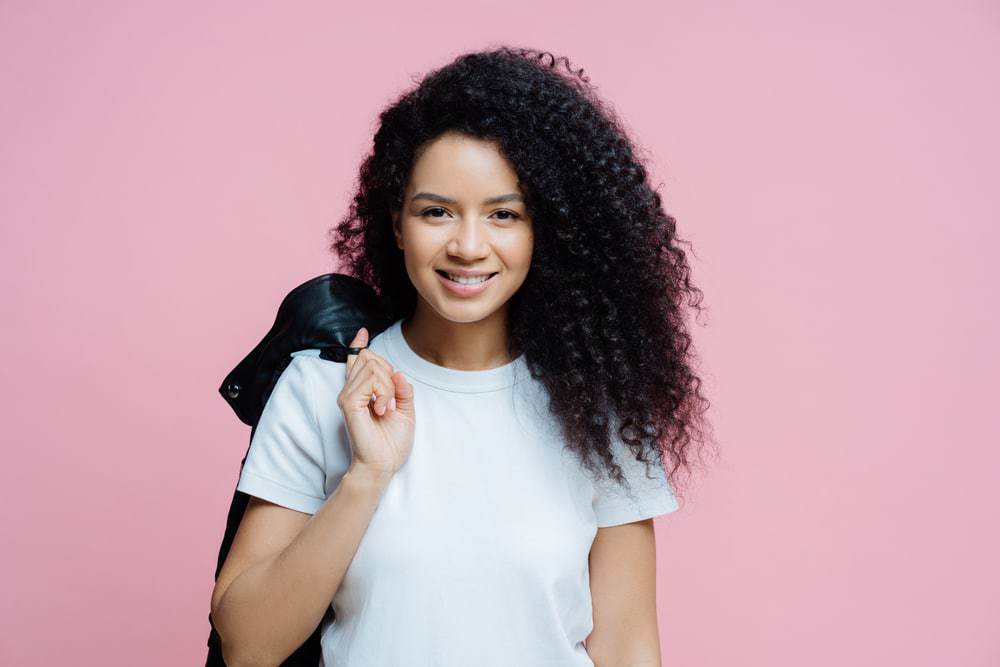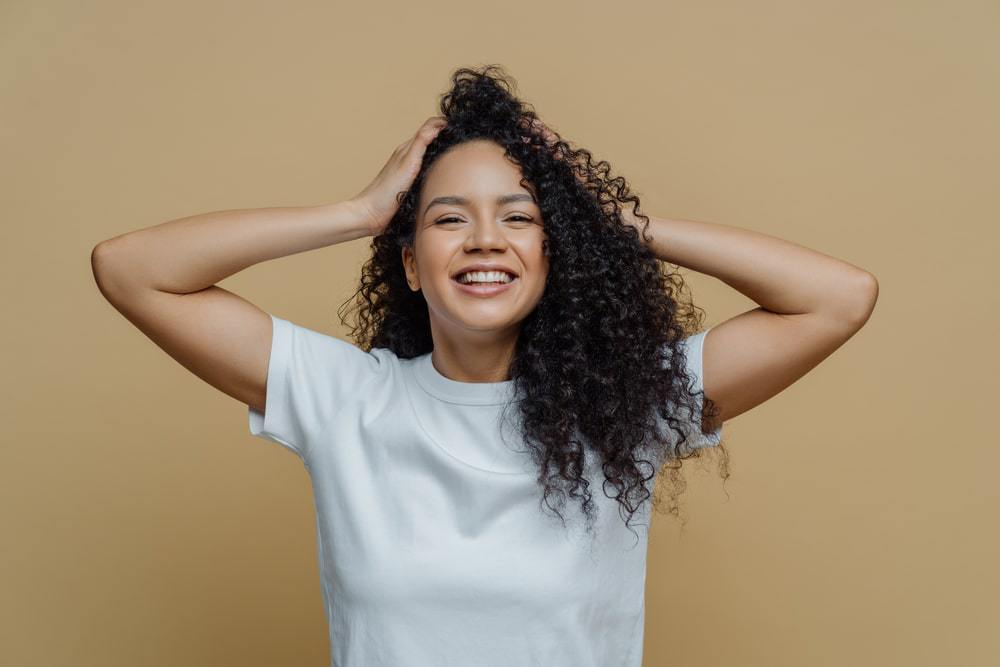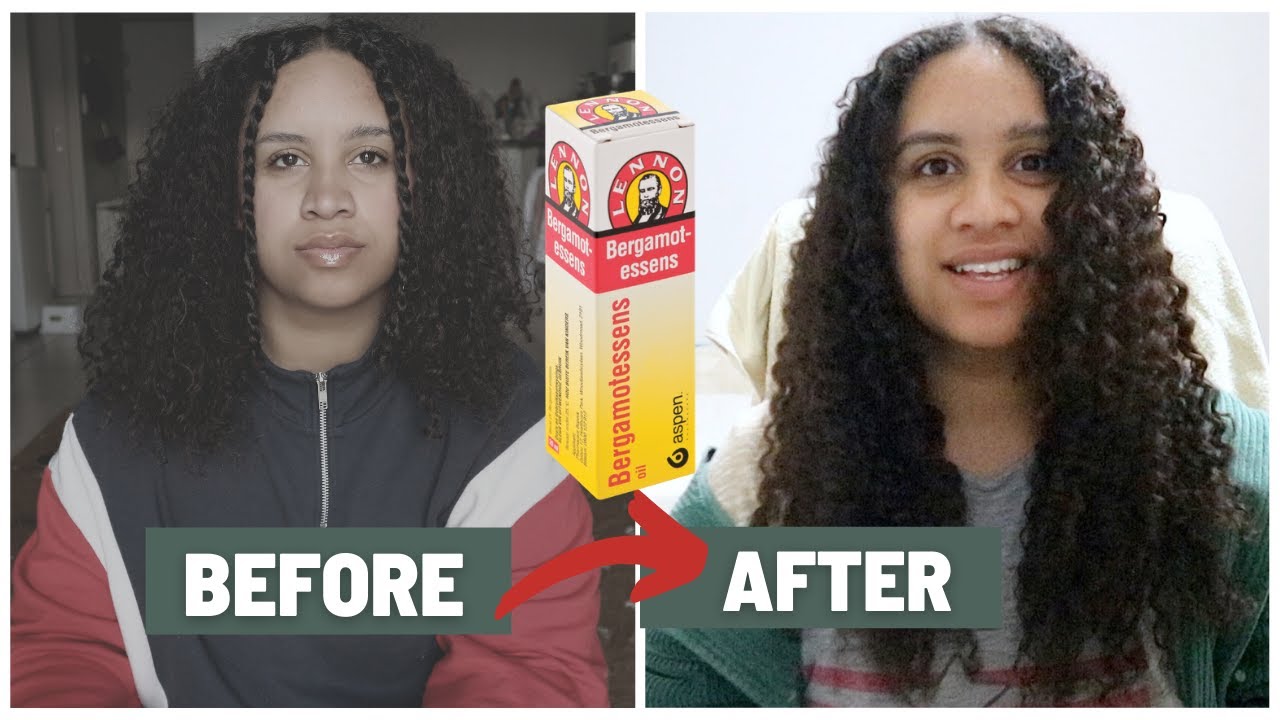
It is fair to say that bergamot oil is one of the best-known and beloved hair care products in the beauty industry today. For centuries it has been associated with luxury treatments, and with good reason.
Between its citrusy scent and tangy taste, bergamot oil can be downright sumptuous as part of perfume or in a recipe.
These days, however, it gets even more love as a skin and hair care supplement.
So what has everyone so excited about bergamot essential oil, and what can it really do for your skin and hair?
In this article, we'll discuss how to use bergamot oil to promote hair growth, soothe scalp irritation, reduce frizziness, and much more.
Table of Contents
How to Apply Bergamot Oil to Your Hair and Scalp
First, it’s important to note that bergamot oil is quite potent, and while that’s a good thing, given how many benefits it can bring to your hair, it also means that using it undiluted can be painful.
Most essential oils need to be diluted before being used safely and topically on your skin, and bergamot oil is no exception. Failure to dilute bergamot oil properly can lead to everything from irritation, swelling, and redness to blisters, hives, and more serious reactions.
Bergamot oil also contains a compound known as bergapten that, given its phototoxic nature, can cause your skin to become more sensitive to sunlight.

As a result, if you aren’t careful, applying too much bergamot oil or failing to dilute it can give rise to some nasty burns and scalp damage.
As such, it is essential that you dilute your bergamot oil with a proper carrier oil, such as jojoba oil, grapeseed oil, sweet almond oil, avocado oil, or coconut oil, at a ratio of about two to three drops of bergamot oil to a teaspoon of your carrier oil.
Massage the mixture into your scalp for a couple of minutes, and let it sit overnight or rinse it out after an hour.
You can also add a few drops of diluted bergamot oil to your shampoo or pair it with other essential oils such as rosemary essential oil, lavender oil, thyme oil, peppermint oil, or chamomile oil.
Bergamot Oil Benefits

1. Promotes Hair Growth
Hair growth is at the top of the wish list for many women when searching for a hair growth product or essential oil. Bergamot essential oil doesn't disappoint, as there is some evidence that bergamot oil can help promote hair growth.
One of the reasons this essential oil is so good at stimulating hair growth is that it can help stimulate blood flow beneath your scalp.
Better blood flow around your roots is instrumental to stimulating hair growth, as oxygen and nutrients get into the roots of your hair follicles, giving the same kind of “Miracle Grow” touch as fertilizer gives to the soil beneath a flowerbed.
Of course, there are no “miracles” when it comes to hair care, which is why it is all the more satisfying to find that these effects are tangible and real.
2. Soothes Irritation
When your scalp is irritated, it cannot take full advantage of the benefits of hair growth treatments. Just as dried-out soil cannot support the roots of the foliage planted in it, hair follicles cannot survive, let alone thrive, atop a scalp that is dry and irritated.

On top of that, dryness and irritation are also leading causes of dandruff. With your scalp dry and itchy, it’s only natural that you’ll want to scratch it, resulting in a cascade of dry flakes throughout your hair (i.e., leading to dull and dry hair).
That’s why it is important to use hair care products that can soothe irritation, and bergamot essential oil excels in that regard. The serotonin and dopamine contained in bergamot oil can go a long way to help soothe irritation.
3. Antimicrobial and Antiseptic Properties
A study in a 2011 issue of Food Research International found that bergamot oil has antimicrobial properties. This, combined with its antiseptic properties, makes it ideal for combatting bacteria, as described above.

You already know why combatting bacterial buildup is so important for your food, but the fact of the matter is antimicrobial products are just as important for the long-term health of your hair.
This is due in part to the fact that bacterial infections are one of the primary causes of dandruff. Other scalp infections that can stem from bacterial issues include ringworm, folliculitis, eczema, impetigo, and various types of fungal infections.
The antimicrobial nature of bergamot oil can help ensure that your scalp does not fall prey to these infections. Simultaneously, its antiseptic side can eradicate any contagions at the start, ensuring that they do not spread and cause greater damage.

4. Moisturizing and Conditioning Powers
To combat dry and irritated scalp, as mentioned above, you need a hair and scalp care treatment that can soothe your skin, and that means finding one that can moisturize your skin.
It also helps to have something on hand that can condition your hair to soothe any potential problems and provide that extra touch of softness.
In part, bergamot oil can do both of these things because it is rich in fatty acids that can act as natural moisturizers.

5. Cleanses Your Scalp
A buildup of dirt on your scalp can be just as problematic in the wrong conditions, causing your pores to become clogged, which can cause scalp irritation and infections.
As important as it is to clean your scalp, you need to be careful not to strip it clean of the natural oils that act as a barrier against the elements and keep it from drying out.
Some shampoos can have this very problem, proving too harsh for sensitive scalps. Thankfully, bergamot oil is gentle enough not to irritate your skin while still helping to cleanse your scalp.

6. Repairs Damaged Hair
Hair damage can range from a mild nuisance to incredibly unsettling. Whatever the degree of concern you may have with your hair, however, the fact remains you want to nip hair damage in the bud and repair it as quickly as possible.
This is another area where bergamot oil excels. Its combination of moisturizing, conditioning, soothing, and nourishing elements makes it an ideal choice for comprehensive hair repair. It is especially effective at treating hair that has become sunburned or dried out.
Part of its effectiveness stems from containing antioxidants, which can help oxidative stress that can cause your hair to age and wither.

7. Straightens Frizzy Hair
If you suffer from frizzy hair, chances are you’ll do whatever you can to fix your seemingly untamable mass of tangles, and bergamot oil may be just the thing to help.
Remember those fatty acids that can act as natural moisturizers? Well, they double as a hair-smoothing and softening agent.
Not only can you stop your hair from frizzing out all over the place, but you can also make it softer, smoother, and more sumptuous all at once.
8. Adds Shine
Just as important on the aesthetic side of hair care as managing frizziness is adding to its sheen, and once again, bergamot oil shines through, imbuing your mane with a chic sleek finish.
If you are looking for a hair care product that can add as much to your hair cosmetically as it does healthwise, bergamot oil may be a great choice.
9. Scintillating Scent and Stress Relief
Smoothness, softness, sleekness – what’s missing from this hair care equation?
The scintillating scent that comes with the most fragrant shampoos and hair care products gives your mane that extra dash of freshness.
Bergamot was a favorite perfume among the French aristocracy for a reason, after all, and its citrusy aroma can do wonders for your hair.

When your hair looks and smells good, there’s every chance you might feel better, too. Like every other aspect of managing your personal appearance, good hair care is a manifestation of and chance to build confidence. That mood boost can even help your hair itself.
You don’t need a scientific study to tell you that stress can cause or exacerbate hair loss (but if you do, here you go). As mentioned above, bergamot essential oil has been used in aromatherapy and has been found to be soothing there.
If you find its citrusy scent soothing, having it in your hair may allow you to take that tiny reservoir of stress relief with you throughout your day.
What Are the Benefits of Bergamot Oil?
From perfume to tea sweeteners to hair care products, bergamot has had a varied history over the centuries. Also, science has tracked its ability to help with a wide variety of medical issues.
For example, a 2015 study in Japan studied the impact of bergamot mixed with water vapor, indicating a decrease in anxiety and stress.
Another study from 2013 published in Current Drug Targets looked at bergamot used for aromatherapy and found that those using bergamot in that way experienced an improvement when faced with conditions such as depression and anxiety.
It isn’t a substitute for proper therapy for depression or medication for anxiety, but it can help some by releasing serotonin. Bergamot also contains linalool, which is yet another compound that can help manage stress.

Other studies have focused on bergamot’s efficacy in the kitchen in fighting food poisoning and bacteria. A 2006 study reviewed bergamot’s efficacy in combating Staphylococcus aureus, Listeria monocytogenes, Bacillus cereus, E. coli O157, and Campylobacter jejuni, though further studies are necessary.
The Italian Journal of Food Safety likewise released a study in 2016 that tested bergamot on different variants of Listeria monocytogenes, finding that it provided varying degrees of protection against the growth of that bacteria as well.
There is also evidence to suggest that bergamot can help lower cholesterol. A 2016 study in Phytomedicine found evidence to suggest that it can lower lipid levels, though the full reason for this remains unclear.
A 2018 study following up on the 2016 study seemed to confirm that, though it is worth noting that the 2018 study was conducted on rats while the 2016 one was performed on human and animal subjects.
That said, the 2018 study also indicated that bergamot also has anti-inflammatory properties, which can be incredibly important for a scalp care product.
This is further corroborated by a 2017 study published in the International Journal of Molecular Sciences, which found that bergamot has both linalool and carvacrol, containing analgesic, anticonvulsant, and anti-inflammatory properties that can help soothe your skin.

The History of Bergamot Oil
The citrusy fruit from which we get bergamot essential oil is native to Southern Italy and the Mediterranean. “Bergamot” comes from “bergamote” in 17th-century French, which in turn came from “bergamotta” in Italian.
Taking things back even further, that word may have an earlier Turkish origin in “bey-armudu,” meaning “prince’s pair.”
While the citrusy tree is found throughout Southern Italy, it’s Northern Italy that is home to the town of Bergamo.
Before it was the darling of hair care experts everywhere, bergamot was an in-demand perfume for the French aristocracy after a Sicilian gentleman, Francis Procopius, introduced it to France around 1686.
The oil's fragrance was a favorite of Madame du Barry, one of the great socialites of the age and mistress of Louis XV.
Since then, it has also become a favorite among tea lovers as well, and if you’re a fan of Earl Grey, in particular, chances are you’ve had it with a dash of bergamot.
Can I Leave Bergamot Oil on My Hair?
You can leave bergamot essential oil on your hair as a leave-in treatment. However, it should always be diluted with a carrier oil before applying it to your hair. Using undiluted bergamot oil on your scalp or hair can cause irritation and sensitivity, so doing a patch test before applying it all over your head is crucial.
Is Bergamot Oil Good for Hair Growth?
Bergamot oil is believed to be good for hair growth because it stimulates blood flow to the hair follicles. The increased blood flow provides the necessary nutrients and oxygen for healthy hair growth. Bergamot essential oil also contains vitamins and minerals that nourish the scalp and hair, promoting healthy hair growth and preventing hair damage.
How Do I Apply Bergamot Oil to My Hair?
To apply bergamot essential oil to your hair, you need to dilute it with a carrier oil such as coconut oil, olive oil, or jojoba oil. The recommended dilution ratio is one part bergamot oil to three parts carrier oil. Apply the mixture to your scalp and hair, massage it in thoroughly, then wash it out after several minutes, or you can leave it on overnight.
Does Bergamot Help Thinning Hair?
Bergamot oil is known to have antimicrobial and antifungal properties that can help keep the scalp free of infections, which can be a contributing factor to hair loss. By preventing scalp infections, the hair can grow healthier and stronger. The oil also helps stimulate blood circulation in the scalp, which increases the supply of nutrients and oxygen to hair follicles.
Does Bergamot Oil Help Gray Hair?
There is no evidence to suggest that bergamot oil helps with gray hair. However, bergamot essential oil may help to improve the overall health and appearance of your hair. The vitamins and minerals present in bergamot can nourish and strengthen the hair, making it less prone to breakage and damage.
What Are the Disadvantages of Bergamot Oil?
While bergamot has many benefits for hair care, there are some potential disadvantages to be aware of. Bergamot essential oil can cause skin sensitivity and allergic reactions in some people. It can also increase your skin's sensitivity to sunlight, which can lead to sunburn and skin damage. Always dilute bergamot oil with a carrier oil before using it.
- How to Make Lemongrass Oil for Hair
- How Does Jojoba Oil Help Hair
- How to Make Scalp Smell Good
- Clary Sage Oil for Hair Growth

Bergamot is an incredibly potent essential oil and one that can aid your well-being in various ways. The oil has established itself as a versatile and beneficial hair care product, offering a range of advantages for both hair and scalp health.
By promoting hair growth, soothing scalp irritation, fighting bacteria with its antimicrobial and antiseptic properties, moisturizing and conditioning the hair, cleansing the scalp, repairing damaged hair, straightening frizzy hair, and adding shine, bergamot oil proves to be a valuable addition to any hair care regimen.
Additionally, the citrusy aroma of bergamot oil may contribute to stress relief and improved well-being. However, it is crucial to remember that bergamot oil should always be diluted with a carrier oil before use to avoid potential skin irritation and increased sensitivity to sunlight.
While some studies support the various benefits of bergamot oil, further research is needed to solidify these findings.
As a multi-purpose essential oil with a rich history in the beauty and wellness industries, bergamot oil offers an effective and fragrant solution for those seeking to improve their hair's health and appearance. As long as you take care to dilute the oil and use it responsibly, it can be a valuable aspect of your hair care regimen.





